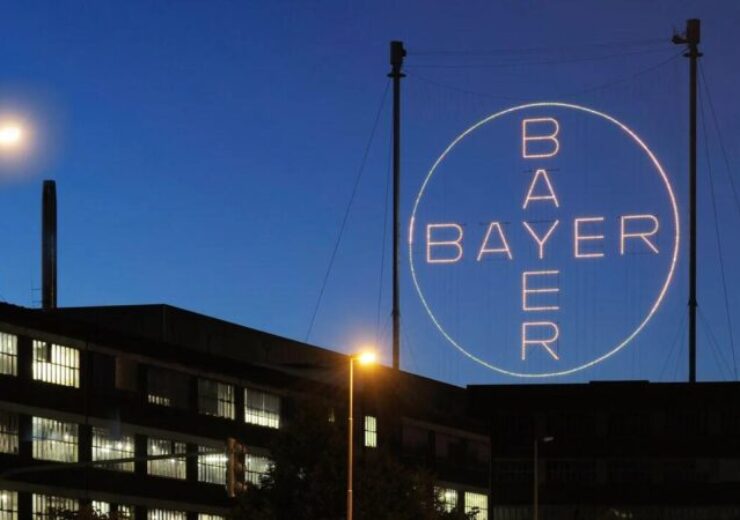The new studies will assess the efficacy and safety of finerenone in around 9,000 additional HF patients with reduced (HfrEF), mildly reduced (HfmrEF), and/or preserved ejection fraction (HfpEF)

Bayer broadens clinical development programme for exploring finerenone as a potential heart failure treatment. (Credit: Bayer AG)
German pharmaceutical company Bayer has announced plans to expand its MOONRAKER clinical development programme to evaluate Kerendia (finerenone) as a possible treatment for heart failure (HF).
Bayer will further investigate the drug in three additional investigator-sponsored collaborative studies.
Kerendia is a non-steroidal mineralocorticoid receptor antagonist (MRA). It was approved by the US Food and Drug Administration (FDA) in July 2021 to treat a type of chronic kidney disease (CKD) associated with Type 2 Diabetes (T2D).
Under the approval, Kerendia can be used for reducing the risk of sustained eGFR decline, kidney failure, cardiovascular death, non-fatal myocardial infarction (MI) and hospitalisation in adults having CKD associated with T2D.
MOONRAKER is expected to enroll about 15,000 patients, making it one of the largest HF study programmes to date, the German pharmaceutical company said.
The University of Colorado-affiliated non-profit academic research company CPC Clinical Research is funding the three further investigations, which are being carried out in partnership with other academic research institutions.
These new studies will assess the efficacy and safety of finerenone in around 9,000 additional HF patients with reduced (HfrEF), mildly reduced (HfmrEF), and/or preserved ejection fraction (HfpEF).
The ongoing Phase 3 study FINEARTS-HF is evaluating the MRA compared to placebo on top of standard of care (SoC) in more than 6,000 HF patients with mildly reduced or preserved ejection fraction.
Bayer chief medical officer Michael Devoy said: “With the addition of the REDEFINE-HF, CONFIRMATION-HF and FINALITY-HF studies to the MOONRAKER heart failure clinical trial programme, we aim to gain a comprehensive understanding of the potential of finerenone for the treatment of heart failure, examining its efficacy and safety across a broad spectrum of patients and clinical settings.
“The studies will complement our Phase 3 FINEARTS-HF study, and we hope the findings will provide additional guidance around the potential clinical implementation of finerenone.”
Finerenone was assessed in FIDELIO-DKD and FIGARO-DKD CKD clinical trial programme across a range of CKD severity in adults with CKD related to T2D.
